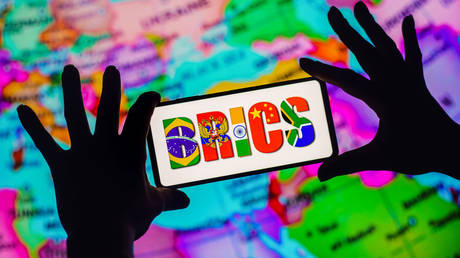The bloc of five developing countries has a larger share of global GDP than the Group of Seven major economies, research finds
The BRICS group, comprising the world’s five major developing economies, has overtaken the Group of Seven (G7) by making up a larger share of the global gross domestic product (GDP) based on purchasing power parity, data compiled by Acorn Macro Consulting, a UK-based macroeconomic research firm, shows.
According to the findings, the bloc of BRICS countries, Brazil, Russia, India, China and South Africa, contributes 31.5% of the world’s GDP. Meanwhile, the G7, consisting of the US, Canada, France, Germany, Italy, Japan and the UK, and considered the most advanced economic bloc of countries on the planet, add up to 30.7%.
The gap between the two groups is expected to continue to grow, analysts say, as China and India are experiencing robust economic growth, and more countries are interested in joining BRICS.
Earlier this year, Russian Foreign Minister Sergey Lavrov said that “more than a dozen” nations have expressed an interest in joining BRICS, including Algeria, Argentina, Bahrain, Bangladesh, Indonesia, Iran, Egypt, Mexico, Nigeria, Pakistan, Sudan, Syria, Türkiye, the United Arab Emirates and Venezuela. Meanwhile, Saudi Arabia, Egypt and Bangladesh have acquired equity in the New Development Bank, BRICS’ funding organization.
Last year, BRICS countries proposed creating their own currency in order to move away from the US dollar and the euro in mutual transactions.
International settlements in those currencies were made difficult for Russia, a BRICS founding member, by Ukraine-related sanctions. More recently, Russian President Vladimir Putin suggested the use of the Chinese yuan in transactions with BRICS allies and other international partners in Asia, Africa and Latin America.
For more stories on economy & finance visit RT’s business section





